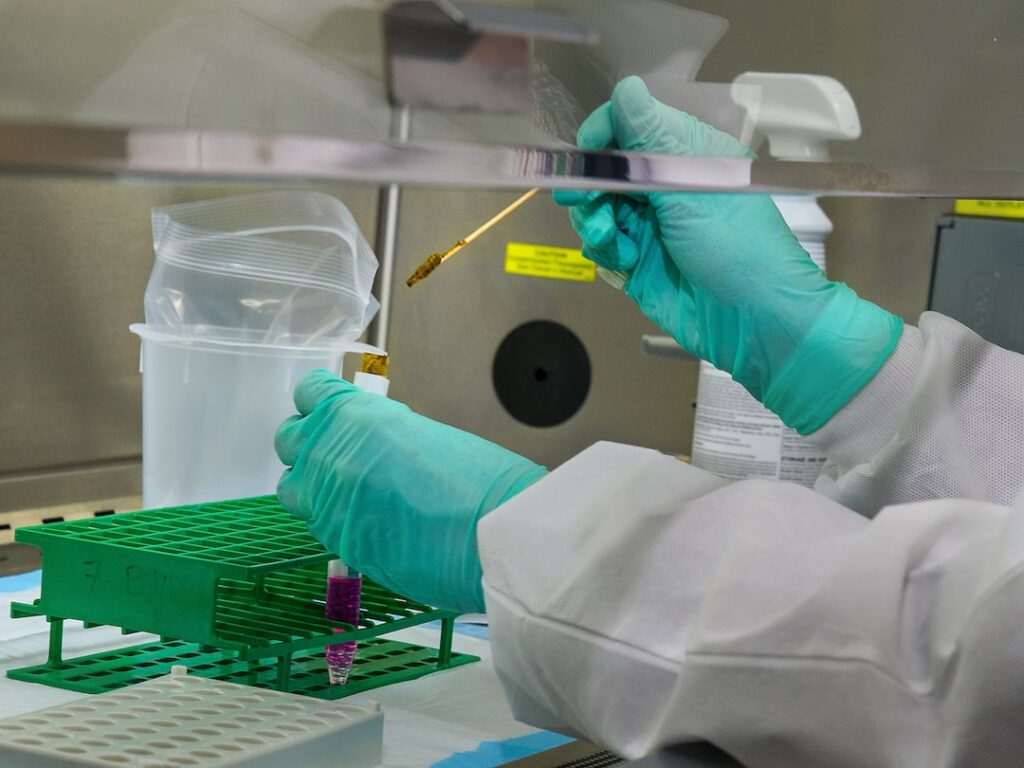Did you know that the average salary for a phlebotomist in the U.S. is about $37,380? This number can vary due to several factors, including the state you work in. You might wonder, how much do phlebotomy technicians make in Virginia?
Even within a state, there are various factors to consider, and you’ll want to know what steps to take to make the most possible.
While this can feel like a challenge, it doesn’t have to be! Read this guide on the average phlebotomy technician salary in Virginia today.
How Much Do Phlebotomy Technicians Make in Virginia?
The average annual phlebotomy technician salary in Virginia is about $40,519. This includes an average bonus as well. Entry level is about $31,039.
Senior-level phlebotomists can make around $48,310. The phlebotomy technician salary in Virginia is about $134 more than the national average. A mid-level phlebotomist can expect to make about $36,970. You’ll also require much less schooling and save money overall.
Phlebotomy Technician Benefits
A phlebotomy technician’s salary can be completed in under a year. There are plenty of jobs to go around as well!
You can find work at blood donor centers, labs, hospitals, and more. It’s a top pick if you want a secure position with benefits.
It’s a great job for those who don’t want to be bored. You won’t be stuck at a desk; instead, you’ll be on the move.
Some responsibilities include walking lab samples to drop-offs, retrieving patients from the waiting room, and more. Help medical professionals diagnose what’s going on with the patient through blood samples.
Along with steady pay and helping others, you’ll often have dental, medical, and a 401K. Bonuses are often given throughout the year.
Some common benefits include the following:
- Employee assistance
- Childcare
- AD&D insurance
- 401K matching
- 403(b)
- Dental Insurance
- Employee discounts
- Flexible schedule
- Loan forgiveness
- Opportunities for growth
- Wellness programs
- Paid sick time
- Paid time off
- Referral programs
Phlebotomy Technician Salaries in Major Cities in Virginia
The annual phlebotomy technician salary will vary by city. Since your role is in high demand, there are various locations to choose from.
Some Virginia city salaries include:
- Richmond, $19.32/hour, $50,242
- Virginia Beach, $18.37/hour, $47,783
- Chesapeake, $14.37/hour, $37,370
- Norfolk, $18.32/hour, $47,635
- Newport News, $10.19/hour, $26,488
- Alexandria, $18.58/hour, $48,313
- Hampton, $10.32/hour, $26,835
- Roanoake, $18.35/hour, $48,507
- Portsmouth, $10.21/hour, $26,563
Save On Tuition
Not only is the position well paying, but schooling is affordable. It’s much less than other medical careers since you don’t need a college degree.
You’ll need a high school diploma (or a GED) and a national certification. Once you finish school, you’ll be ready to take the national certification examination.
You’ll need to pass this exam to become a phlebotomist. Instead of paying thousands, you’ll spend a few hundred.
This certification is valid in all 50 states and Canada. You can earn your certification online at a self-paced schedule. There are also in-person classes available through the program.
The Future of Phlebotomy
The job outlook for phlebotomy is 10% between 2021 to 2031, faster than the average for other positions. In 2021, there were 135,500 jobs available. The national average is about $37,380.
It’s projected that there will be about 21,500 openings over the next decade. These positions are predicted based on those retiring or transferring to other positions.
If you decide to become a phlebotomist, there’s room for growth. Some will go on to get their bachelor’s degrees.
Others might become medical technicians, medical assistants, or nurses. While you’re working, you could take classes online or in person in the evenings.
As you work as a phlebotomist, you’ll meet clinical hour requirements when applying for advanced degree programs. You’ll also gain valuable experience.
Duties and Responsibilities
As a phlebotomist, you’ll collect blood and other specimen samples. The process of collecting blood is called venipuncture.
You’ll use a butterfly needle and a tourniquet. Various tubes contain specific additives for lab tests.
Courses will teach you about using protective gear to avoid infections from spreading. You’ll also learn about the safe disposal of tubes, used syringes, and other medical waste.
Educational Programs
Consider your goals and salary expectations when choosing the right program. A certificate program is a great option if you’re looking to start immediately.
Programs could be completed in as little as four weeks. There are also less intensive phlebotomy course schedules if you’d prefer.
Some coursework will include equipment, procedures, techniques, human physiology, and medical terminology. Receive practical training and classroom instruction to feel comfortable and begin.
Others decide to receive an associate’s degree. This is a good option if you’re looking for a more specialized role. Some will complete an associate’s degree after the completion of a certification.
Some will decide to complete a bachelor’s degree. A bachelor’s degree will have you go into specialized or supervisory roles.
The Average Phlebotomy Technician Salary in Virginia
After exploring this guide, you should better understand the average phlebotomy technician salary in Virginia. The great news is that once certified, you can work anywhere in the U.S. or Canada!
Are you ready to get certified through a self-paced program with both online and offline options? Then enroll in our certified phlebotomy courses today! Our phlebotomy technician certification can be completed entirely online at your own pace.
If you have any questions, we’re here to help! If you’re looking to further your career, we have multiple certifications you could earn as well.
Are you unsure where to begin? Give us a call or contact us today. We also offer other programs, such as pharmacy technicians, telemetry technicians, and more.

Nancy L. Kimmel obtained her PhD in Environmental Engineering in 2002, then went on to teach Physics and Mechanical Engineering at Lawrence Technological University, Henry Ford College and Oakland University. She obtained her Associate in Nursing from Henry Ford College and then went on to earn her Master Degree as a Family Nurse Practitioner and became Board Certified working as a licensed FNP in the State of Michigan. She then went on to Medical School where she is now in her 3rd year, and is also in the process of obtaining her Doctorate in Nursing Practice through Chamberlin University. She has authored the NET Study Guide, as well a several books on subjects of Math, ECG/EKG and Phlebotomy. She holds a patent on an Air Filter through the U.S. Patent Office.


